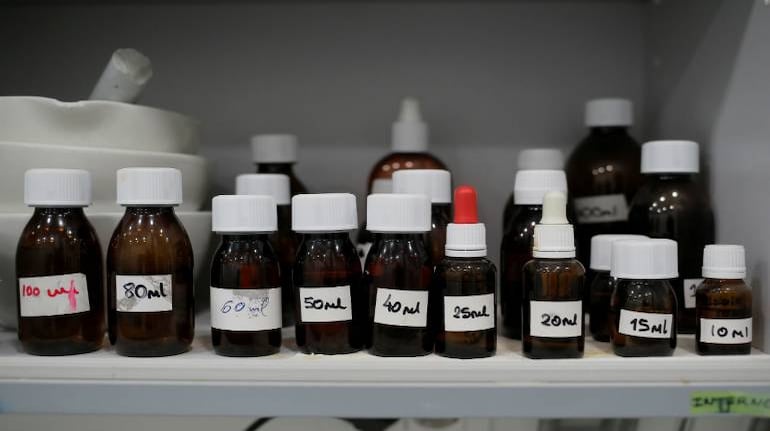



A first of its kind comparative analysis of drug approvals in India has suggested that the country’s apex regulator may be more liberal in approving non-cancer drugs when compared to cancer drugs and has called for the assessment of drug regulatory processes and policies to improve patient safety.
The study, titled “A comparative study of cancer drug approvals in India and high-income countries”, and carried out by researchers based in New York and Kerala, analysed the approval of 257 new drugs, including 47 anti-cancer drugs, by the Central Drugs Standard Control Organisation between 2010 and 2019.
Out of these, only 69.6 percent or 179 new drugs were approved by the US Food and Drug Administration (USFDA), 62.65 percent or 161 were approved by the European Medicines Agency and 63.40 percent or 163 drugs were approved by Health Canada (HC).
Most of the cancer drugs that are approved for use in India, on the other hand, are approved by these agencies except two that are not approved by USFDA and HC.
“It can mean one of the two things,” Dr Aju Mathew, oncologist and researcher associated with MOSC Medical College in Kolenchery, Kerala, who co-authored the study, told Moneycontrol. “We are either innovators in pharmaceuticals development or that our approval process is lax.”
Moneycontrol also tried to reach out to the Drug Controller General of India V G Somani, who heads the CDSCO, for his views on the study findings but he was not available for comments.
Research highlightsThe findings suggest that nearly 24 percent of the new drugs approved by CDSCO are not approved by all three overseas agencies and about 43 percent of new drugs are not approved by at least one of the three.
It also suggested that only about 56 percent of the new generic drugs approved by CDSCO are approved by all three agencies. Among the 257 new generic drugs, nearly 76 percent of drugs are approved by at least one of the above three regulatory agencies.
Also read I India has more doctors than WHO standards, says Centre. Is that a valid claim?
Is it because there are several novel drugs that are approved in India that are yet to be approved in high-income countries the study asked, adding that the data on the usual order of drug approvals and the general perception that novel drug development occurs in HICs contradict such a hypothesis.
“If so, does it expose a laxity in the drug approval process in India?” said the research study.
The 59th report of the parliamentary standing committee on health and family welfare had shown that there were 33 drugs that were approved in India between January 2008 and October 2010 without any clinical trials, noted the study.
In some cases, drugs that are banned by other regulatory agencies are approved for sale in India, as per the standing committee report.
‘Known menace’Noted clinical pharmacologist Dr Santanu Tripathi, who is not associated with the scientific paper, said that it is good to note that there is no apparent ‘drug lag’ in terms of cancer drugs in India.
However, an interesting ‘co-finding’ is that around one-third of the non-cancer drugs approved in India during the decade were not licensed in the HICs, he said.
Underlining that the paper does not give explicit details of these products except mentioning a couple of antimalarials and antituberculosis drugs, the absence of which in the HIC market is quite understandable, he said that a conservative estimate indicates that the number of such products is not less than 70.
“Type 1 errors (when statistical significance becomes attributed to findings when in reality no effect exists) in drug approvals is a known menace that needs to be avoided by all means,” said Tripathi.
Such an error refers to granting approval to a product that has questionable efficacy or safety profile, according to him.
Lax system?According to the study, strengthening the drug regulatory system is an integral part of a country’s healthcare system.
Also read I MC Explains I Tecovirimat, a promising drug for monkeypox; will India need it?
In recent years, most of the drugs approved by India were not approved by the United States, European Union and Canada, the research has highlighted, and also added that this could be related to the laxity in India’s drug approval process.
Stressing that the laxity in the approval process by the agencies, poor manufacturing and quality control practices as well as deliberate fraudulent practices would lead to a high prevalence of substandard drugs in the market, the authors have recommended a comprehensive assessment of India’s drug regulatory processes and policies to improve patient safety.
Tripathi, too, said that the study has thus raised an important question that deserves to be investigated.
Discover the latest Business News, Sensex, and Nifty updates. Obtain Personal Finance insights, tax queries, and expert opinions on Moneycontrol or download the Moneycontrol App to stay updated!
Find the best of Al News in one place, specially curated for you every weekend.
Stay on top of the latest tech trends and biggest startup news.